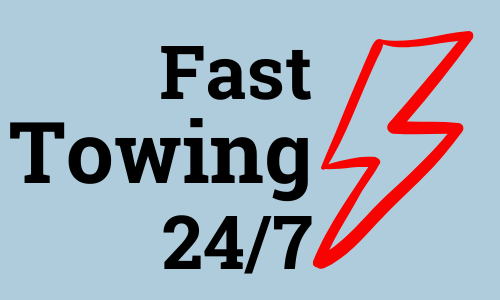Volvo Trucks, University of Minnesota team up to conduct extreme weather field training
GREENSBORO, N.C. — Volvo Trucks North America has announced they are collaborating with the University of Minnesota (UMN) to conduct extreme weather testing.
These extreme weather testing for Volvo’s Class VNR Electric model to analyze the impact of ambient temperature on a truck’s battery life, according to a news release.
In order to conduct these tests, UMN teamed up with two outside sources: Murphy Logistics Solutions (Murphy) to test the battery-electric trucks in Minnesota with cold winter temperatures; and H-E-B Grocery Company (HEB) in Texas to test during periods of intense summer heat.
The testing project is expected to demonstrate the capability of the Volvo VNR Electric using real-world fleet routes and is part of a Battery Efficiency for Sustainable Trucks (BEST) Project sponsored by the U.S. Department of Energy’s (DOE) Vehicle Technology Office. Two Volvo VNR Electric engineering trucks with a six-battery configuration rated to provide up to 275 miles of range will be tracked and documented. Volvo and UMN want to analyze the batteries of the trucks’ performance on different yet similar routes truckers will take in the extreme weather conditions they may face also with different payload weights.
Murphy and HEB will operate the battery-electric trucks on freight routes that exceed the average 250 miles in a day utilizing drivers in their fleets who have been trained by the Volvo Trucks’ electromobility team to utilize regenerative braking and other safe driving practices designed to max vehicle range. The trucks will leave the warehouse at the beginning of the day with a whole 100% state of charge (SOC) and will ideally return near empty (-10 SOC) at the end of the day.
“Volvo Trucks’ key to success is always aiming to improve the business value of our trucks for our customers and continuing to develop a positive impact on the total cost of ownership for the Volvo VNR Electric trucks. This research project is a critical step to ensuring the efficiency and reliability of Class 8 battery-electric trucks regardless of the environmental factors,” said Keith Brandis, vice president of system solutions and partnerships for Volvo Group. “The results of this testing can be expected to bolster fleets’ confidence in the Volvo VNR Electric trucks’ reliability and performance in all weather conditions while still providing the creature comforts for drivers.”
Like battery-electric passenger cars, the batteries can experience a range of reductions during extreme temperatures due to battery chemistry. To combat that, a Battery Thermal Management System (BTMS) is included with the purpose of avoiding the reaction to make the batteries last longer.
The other significant factor is the use of auxiliary power to either cool or warm the passenger cabin.
UMN has also developed an intelligent Energy Management System (EMS) solution tool to help fleets understand that driving style can impact range and also how to take advantage of more energy-efficient routing and decrease the cost and time required for on-route battery charging. The EMS will also enable higher efficiency and longer range through its advanced eco-route planning, which has helped Murphy and HEB achieve more than a 20% increase in range.
“Collaborating on research projects that will have a direct impact on the viability of battery-electric trucks in extreme weather provides a tremendous opportunity for our faculty and students to not only gain insight into the role that research and development plays in industry but make a real difference in advancing sustainable transportation,” said Dr. William Northrop, Professor of Mechanical Engineering and director of the Thomas E. Murphy Engine Research Laboratory at the University of Minnesota – Twin Cities. “Most testing in the past has been in a lab setting but now we are working with two fleets to improve real-world route efficiency and driver productivity to validate our data and software. We are excited to evaluate that data for future applications and help Volvo Trucks’ customers feel confident in deploying these zero-tailpipe emission trucks in even more regions where they can improve fleet sustainability and local air quality.”
Once both projects are complete, UMN will publish the results in a series of conference and journal papers. The information will also be shared with U.S. DOE and Volvo Trucks in the form of a final project report.
The two Volvo VNR Electric trucks participating in the field tests are supported by the Volvo Trucks commercial support teams. They are being maintained and serviced by Nuss Truck & Equipment, the local Volvo Trucks Certified Electric Vehicle Dealership in Minneapolis, Minnesota. Volvo Trucks has a robust network of certified EV dealer partners across North America that have completed the required facility upgrades and rigorous training to service and maintain the Volvo VNR Electric model to ensure peak vehicle uptime, performance, and productivity.
To learn more about Volvo Trucks North America and the Volvo VNR Electric, visit the company’s website here.
Born and raised in Little Rock, AR, Erica N. Guy decided to stay in her hometown to begin her professional career in journalism. Since obtaining her bachelor’s degree from UAPB, Erica has professionally written for several publications about several topics ranging from lifestyle, tech, culture, and entertainment, just to name a few. Continuing her love for her hometown, she joined our team in June 2023, where she is currently a staff writer. Her career goals include continuing storytelling through her writing by being the best professional writer she can be. In her spare time, Erica enjoys trying new foods, cozying up with a good book, spending time with family and friends, and establishing herself as a future businesswoman.
